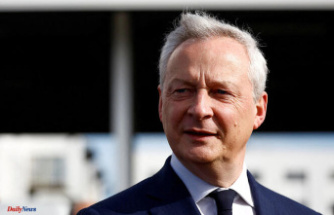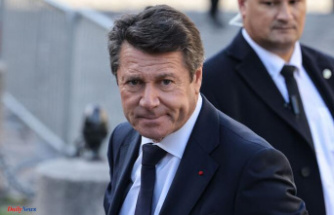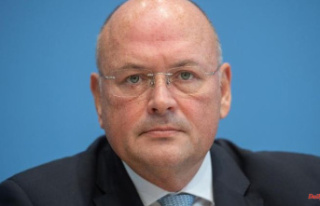An energy cost defense shield of over 200 billion euros is intended to protect people in the country from high gas prices. Only a few believe that this will be sufficient relief. Meanwhile, three quarters of the people in the country are trying to reduce their electricity and gas bills.
The austerity appeals from politics are finding great resonance in the country. In view of the rapidly increasing electricity and gas costs, 75 percent of Germans are cutting back on heating and electricity, as a Forsa survey for the RTL and ntv trend barometer shows. Accordingly, 58 percent are also reluctant to buy new clothing, furniture or other goods. 49 percent try to save gas, 47 percent limit themselves with groceries, 29 percent with Christmas presents. Those who have less income usually limit themselves even more.
The €200 billion defense against energy prices, described by Chancellor Olaf Scholz as a "double boom", is intended to mitigate the consequences of high inflation. The Forsa survey shows that many did not even understand the word. According to this, the "double boom" only made sense to 19 percent of those surveyed. 81 percent don't. It was 35 percent for SPD supporters and 30 percent for the Greens. The understanding rate for the other parties is well below 20 percent in some cases.
Not many believe that the defense shield relieves them sufficiently. Only 19 percent think so, 39 percent are pessimistic. 42 percent do not dare to make an assessment. The more people earn, the more optimistic they are. With a household income of less than 2,500 euros net, only 13 percent believe that there will be sufficient relief. If 4,000 euros come in every month, the figure is 27 percent.
Trust in the government is low. Only nine percent assume that Chancellor Scholz has a "well thought-out strategy". Eleven percent believe Finance Minister Christian Lindner is capable of doing this, while Economics Minister Robert Habeck has 18 percent. 68 percent believe that none of the three have a clear plan. Green politician Habeck suffered a loss of confidence - in August his value was still 26 percent. The bickering about the failed gas levy may have hurt him. He enjoys the greatest trust among his own supporters. 46 percent believe he has a "well thought-out strategy", with Scholz and FDP leader Lindner only about a third in their own ranks.
On the question of whether Germany should supply main battle tanks to Ukraine, support grows slightly. 40 percent are now in favour, a month ago it was 38. The Greens have a large majority in favor (58 percent). Support for the other parties is always less than 50 percent, broken down by FDP, Union, SPD and AfD. Just like four weeks ago, only about a third of those surveyed believe that Germany is always delivering too late and too few weapons to Ukraine. A growing number of refugees from Ukraine would not worry a majority of 54 percent. 27 percent would be "somewhat" worried, 19 percent big.












